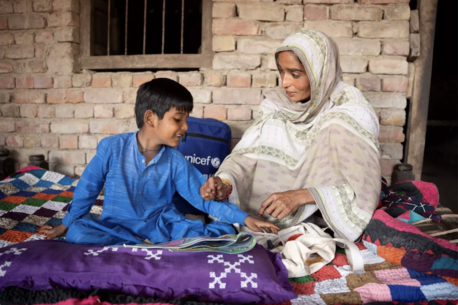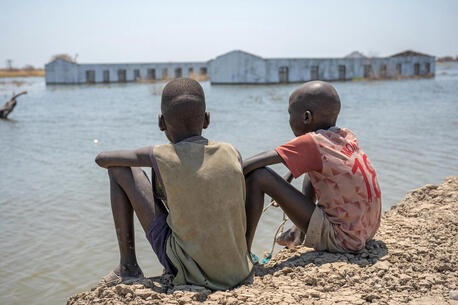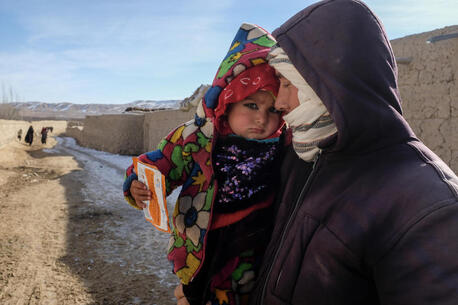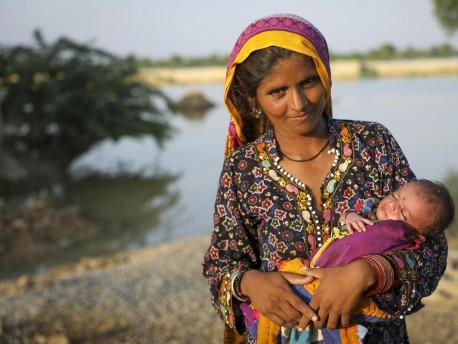
More Help Needed for Flood-Hit Families in Pakistan
Hundreds of thousands of people displaced from their homes face a rising threat of waterborne diseases. UNICEF is delivering lifesaving aid.
Naz Gul, 11, sits beside her little brother, 7-year-old Shahzain, on a roadside in Jacobabad district in southeastern Pakistan's Sindh Province. The family has been camped out here on a sliver of dry land since floodwaters swallowed their home and swept away all their possessions.
Shahzain, below center, is running a high fever. Protecting children from illness and malnutrition is a constant struggle for families living out in the open, surrounded by stagnant water, a breeding ground for disease-carrying mosquitoes.
“We have lost everything," says Naz Gul, below left. "Many days we have one meal a day and we don’t have safe drinking water. We wash our dirty dishes from the flood water. I want to go back to my home.”
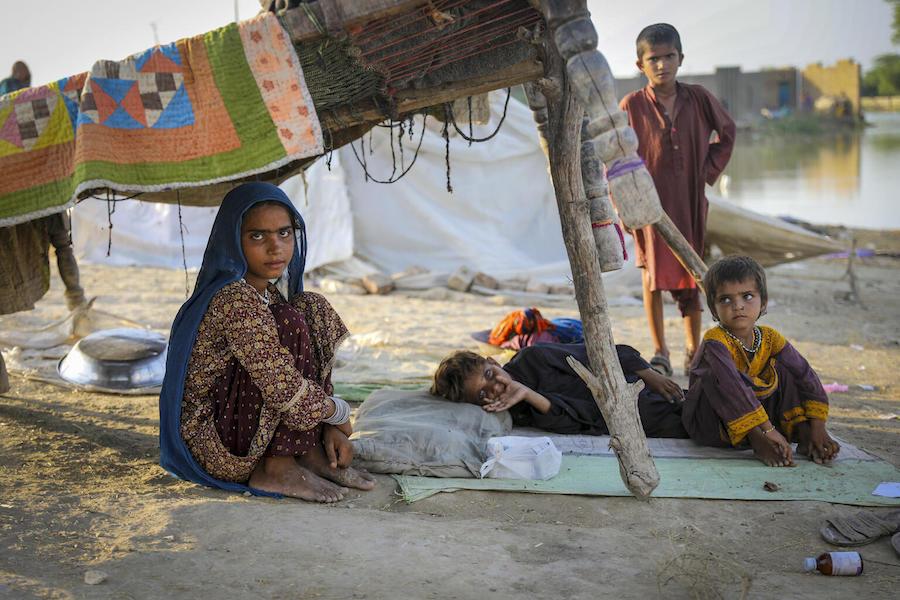
© UNICEF/UN0702905/Zaidi
Heavy flooding linked to climate change has washed away whole villages and infrastructure in all four of Pakistan's provinces this monsoon season. More than 3.4 million children have been uprooted from their homes. Even as the floodwaters begin to recede in some areas, families are still cut off and desperately need support. Below, 18-year-old Haider, center, with his 10-year-old brother, Insaf, left, and 8-year-old cousin, Mazhar, use a jaggery cooking pan as a makeshift raft to travel through floodwaters in Sindh's Khairpur district.
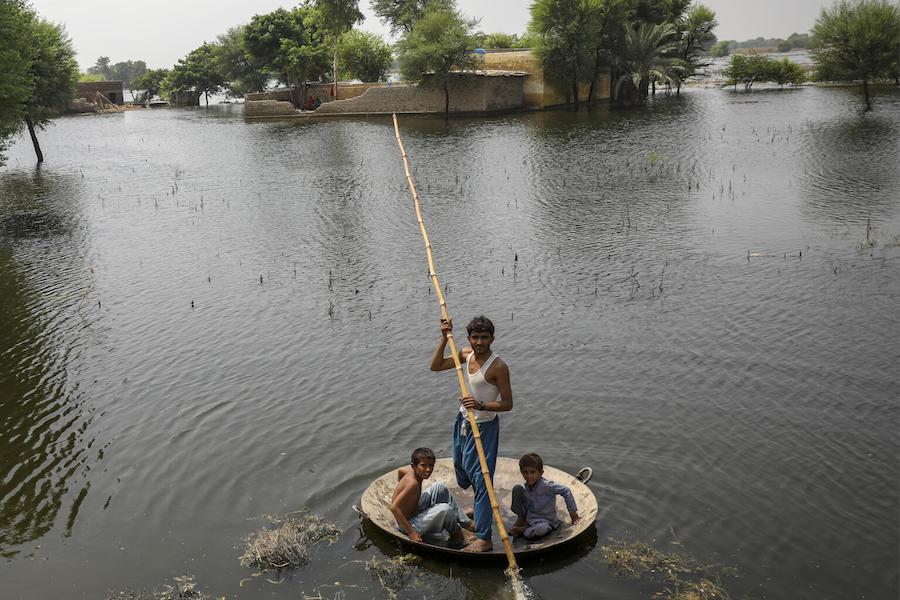
© UNICEF/UN0702984/Zaidi
More than 550 children have lost their lives in the catastrophic flooding. "Each and every one of these deaths is a tragedy that could have been averted," said Abdullah Fadil, UNICEF Representative in Pakistan. "The sad reality is that without a massive increase in support, many more children will lose their lives."
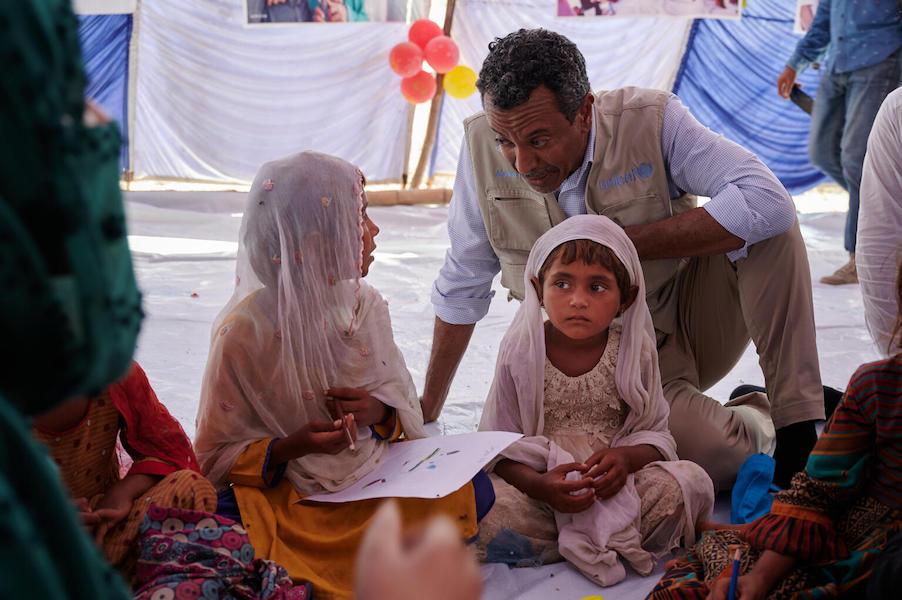
© UNICEF/UN0705958/
Fadil has been visiting flood-affected areas across Pakistan, meeting with families and children, like the two girls above, who spoke with him in a UNICEF Child-Friendly Space in Basti Kashani, Rajanpur district, Punjab Province.
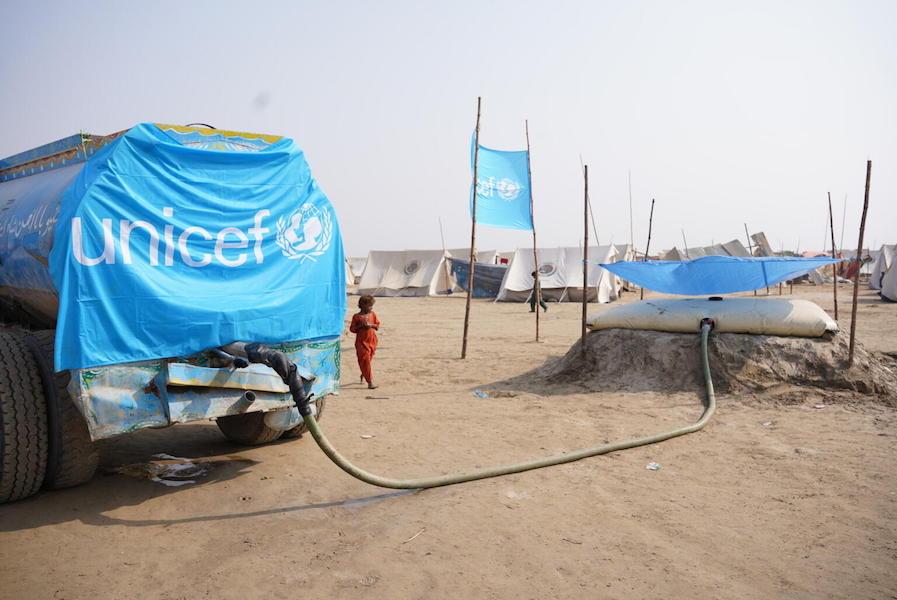
© UNICEF/UN0707012/Butt
UNICEF has been on the ground since Day 1, supporting the Government of Pakistan's flood response. Immediately after the floods, UNICEF dispatched $1 million in prepositioned supplies, with an additional $3 million of supplies rushed to the worst affected areas.
UNICEF is also trucking in safe water and setting up Temporary Learning Centers — like the one below in Basti Kishani — to help children cope with the trauma they are experiencing. Much more help is needed.
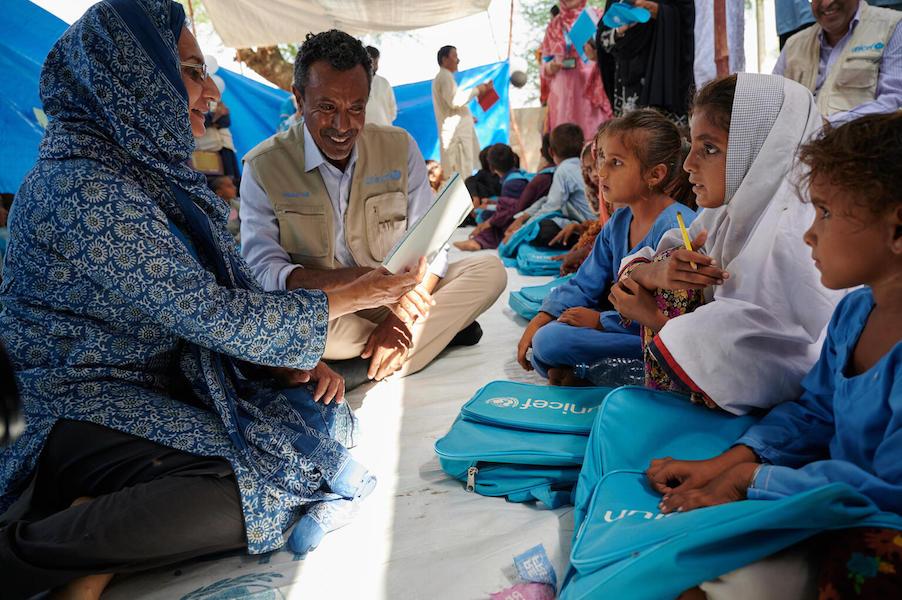
© UNICEF/UN0705960/
"The situation for families is beyond bleak, and the stories I heard paint a desperate picture," Fadil continued. "All of us on the ground see malnourished children battling diarrhea and malaria, dengue fever, and many with painful skin conditions. A lot of the mothers are anemic and malnourished themselves and have very low-weight babies. Mothers are exhausted or ill and are unable to breastfeed. Millions of families have been forced from their homes, now living with little more than rags to protect themselves from the scorching sun."
Daily temperatures in some areas climb to 104 degrees Fahrenheit or higher.
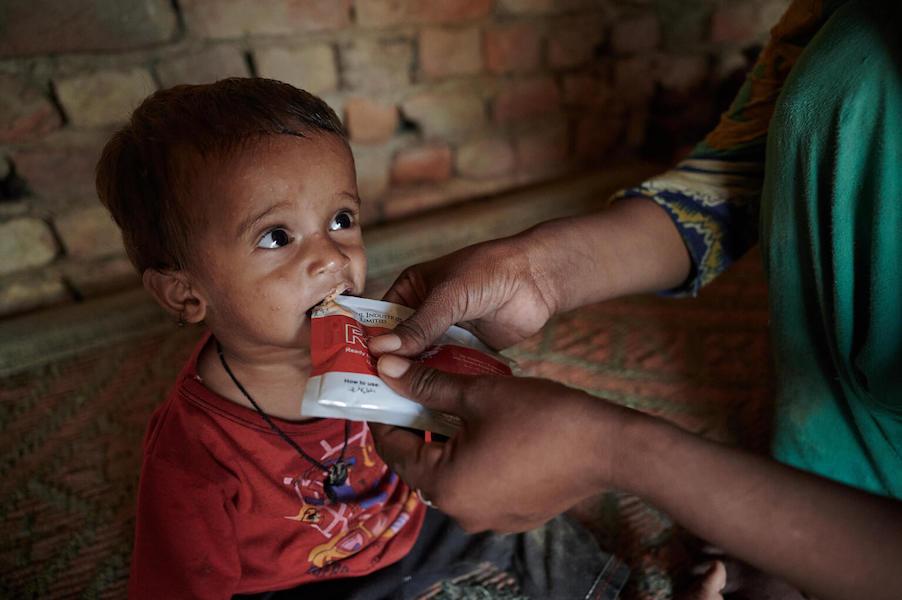
© UNICEF/UN0705925/Noorani
Azaan, 16 months, was diagnosed with severe acute malnutrition by a doctor at one of 71 mobile health clinics set up by UNICEF in recent weeks. His mother was given packets of Ready-to-Use Therapeutic Food, used to bring severely malnourished children back to health.
"There was a lot of rain for weeks," says Azaan's father, Saeein Bakhsh. "Our compound was totally flooded. We used pots, pans and buckets to throw the water out. Half of our home fell. We are now reduced to one room. We lost everything."
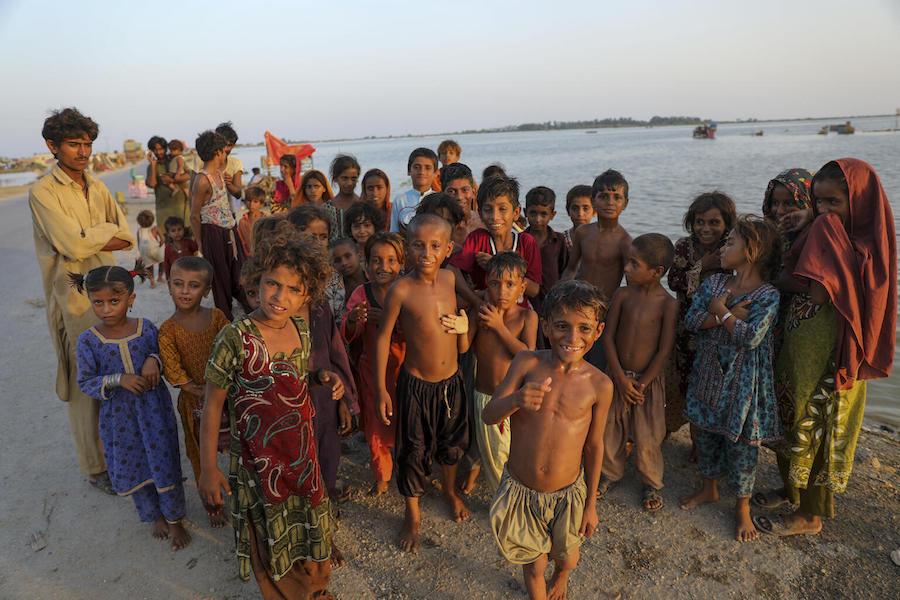
© UNICEF/UN0702921/Zaidi
"The world needs to come together and help the children of Pakistan," said Gerida Birukila, who leads UNICEF's Balochistan field office. "Our funding appeal for $39 million is still less than a third funded, and the needs of children will only continue to grow. Together we can save lives by delivering lifesaving health, nutrition, WASH, protection and education services to every child in Pakistan who needs them the most."
Children and families in Pakistan are struggling to survive an unfolding climate disaster. Your contribution can make a difference. Please donate today.
